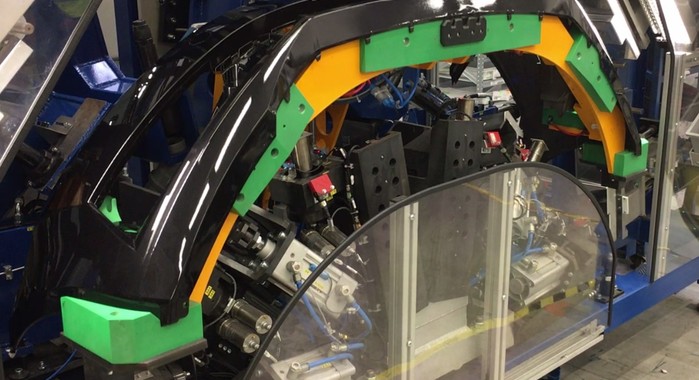Magna has developed a new technology that can help automakers to cut costs and the weight of components.
Called torsional welding, the new process was developed by Magna at its automotive plant in for making vehicle exteriors in Liberec, Czech Republic. This technique is a new way to join plastics and utilizes a high speed twisting motion that generates enough heat through friction to join a plastic bracket to a thermoplastic fascia.
Using this innovative technology makes it possible to join thinner materials and the outcome is reduction in the weight of components by about 10 per cent and this of course reduces the cost of materials also. Magna is currently using this technique for making the exteriors of the 2017 Skoda Octavia, and it offers immense potential for use in other applications also.
With the advent of self-driving cars and more vehicles having advanced driver assistance systems, automotive fascias are likely to become heavier as there will be need to incorporate more sensors with the addition of autonomous features. Hence, torsional welding will be needed to a greater extent so that more sensors can be added without significantly increasing the weight of the vehicle.
Magana recently received an innovation award from The Society of Plastics Engineers Detroit Chapter at its recent TPO conference in Troy, Mich.
Commenting on the award, Magna Exteriors president Grahame Burrow said, “We seek every opportunity, from design and materials to enabling technologies, to help customers meet their lightweighting goals. We appreciate this recognition from SPE and look forward to expanding the use of this innovative process.”






















